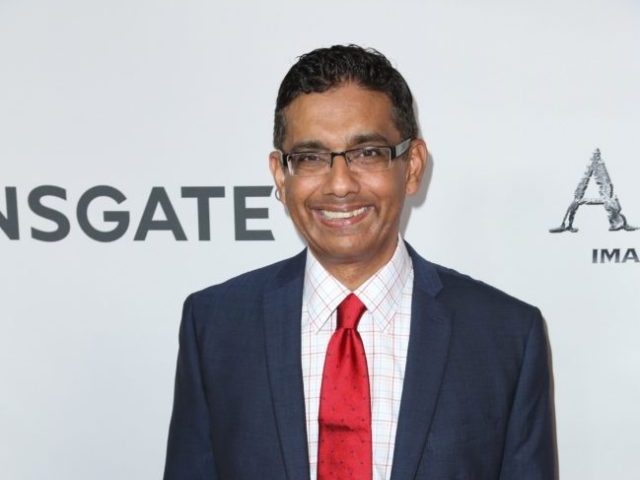Last week, President Trump pardoned Dinesh D’Souza – an accomplished conservative author, pundit, filmmaker, and scholar. It was a perfect example of how the pardon power is supposed to be used.
D’Souza had been prosecuted and convicted in 2014 for violating federal campaign laws. Specifically, he had agreed to reimburse other contributors for their 2012 campaign contributions to Republican Wendy Long in her challenge to Democrat U.S. Senator Kirsten Gillibrand (NY). After he pleaded guilty, D’Souza was fined $30,000 and sentenced to five years of probation, including eight months in a community confinement center in San Diego.
It appears that D’Souza had been selectively targeted for prosecution because he was such an outspoken conservative commentator. His many writings punctured the hollow arguments of the Left, and his 2012 documentary film, “2016: Obama’s America,” was deeply critical of President Obama.
This type of election law violation is a relatively common one, so when Obama’s U.S. Attorney for the Southern District of New York, Preet Bharara, singled out D’Souza for prosecution and sought such a heavy penalty, it smacked of potential partisan motivation.
One notable aspect of the pardon was its timing – in the first half of President Trump’s term. Pardons and commutations of sentences typically occur late in a presidential term – often in the final months before a president leaves office. They are timed late in a presidency because most presidents fear the negative publicity that may result from granting clemency to convicted felons.
For example, on January 19, 2017 – his last full day in office – President Obama set a one-day record by granting commutations to 330 felons at once. It also set an overall record of 1,715 commutations. That was in addition to 212 pardons. His last minute commutations were almost all for drug dealers, reflecting Obama’s view that mandatory sentences for drug-related crimes were too harsh. But many voters disagree, and pardoning a large number of drug dealers en masse before his reelection campaign in 2012 would have entailed significant political risk.
In contrast, President Trump had no such fear in pardoning D’Souza. As the White House declared in a written statement, “Mr. D’Souza was, in the President’s opinion, a victim of selective prosecution for violations of campaign finance laws.”
This is only the sixth pardon of Trump’s presidency. But his early start and his willingness to right the wrongs of the Obama Justice Department bode well for the future.
Kris W. Kobach is the elected Secretary of State of Kansas. Also an expert in immigration law and policy, he coauthored the Arizona SB-1070 immigration law and represented in federal court the ten ICE agents who sued to stop Obama’s 2012 DACA executive amnesty. He is currently a candidate for governor in Kansas. His website is kriskobach.com.

COMMENTS
Please let us know if you're having issues with commenting.